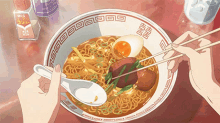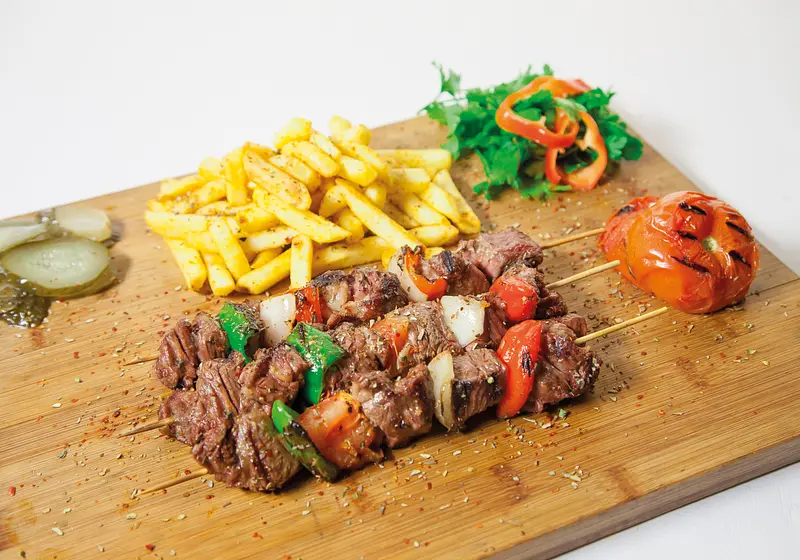During vacation, the heat may have you eating more unhealthily than usual. Most of us are all too familiar with that irrepressible craving for ice cream, hamburgers, or hot dogs, and that's alright.
However, too much of this isn't the best, as it causes weight gain and an increased chance of disease. So, if you're looking for a way to hit pause on the summer splurge, you've come to the right place! Here are 12 ways to eat healthily this season.
Let us slide into your dms 🥰
Get notified of top trending articles like this one every week! (we won't spam you)1. Stay Hydrated
During summer, the heat noticeably rises, which in turn increases the risk of dehydration. To prevent this, make sure you are getting the recommended 64 ounces of water each day. Setting alarms or notifications to remind yourself to take a sip, or even purchasing a time-marked water bottle online, may help you get where you need.


Take the Quiz: What Ramen Are You?
There are sooo many pre-packaged Ramen brands out there. Which one should you try/best fits your personality?
2. Take Advantage of Produce
June, July, and August have produce at their absolute best. You can take advantage of this by purchasing fruits and vegetables, preferably straight from local farmers. They are infinitely healthy, not to mention less pricey when in season. So just head down to the nearest farmer's market and pick out your next healthy treats!
3. Decrease Portions
Every once in a while, it's okay to eat something unhealthy. I mean, we all know the pure joy that comes with treating ourselves to some ice cream or fast food. However, you should limit this. When your meal does lack nutrition, try eating in smaller amounts so you don't consume too much.

4. Eat Meals at the Same Time
Your body follows a pattern that repeats every 24 hours. Eating your meals at different times disrupts this process, which causes weight gain and other health risks. Eating food at the same time has also been proven to keep your energy high throughout the day, better your metabolic activity, and prevent you from unhealthily snacking as the hours draw by!
5. Eat Breakfast
When people are rushing to work or school, breakfast usually falls pretty low on the priority list. However, it's recommended that you sit through this meal because it improves your metabolism, allowing calories to be burned more easily. Skipping breakfast also gives your body the idea that calories should be conserved, not burned.

6. Bring Healthy Snacks
Oftentimes, when you see an ice cream truck or a barbecue, you will be tempted to try some of that instead of sticking to healthier treats. If you pack yourself some nutritious food, you can prevent this problem. Bring pita chips, hummus, yogurt, fruits, or vegetables! They're all really healthy and delicious.
7. Eat Lean Meats
Instead of eating an unhealthy burger, try and consume alternative healthy meats, such as ground turkey, skinless chicken breasts, and fish. Lean meat helps you build muscle, decreases the risk of cardiovascular disease, supports the immune system, and reduces cravings for unhealthy foods. You can also replace the bread you use for the burger to make it even healthier.
8. Be Smart About Cold Treat Choices
When it's summer, it's hot out and you regularly crave something refreshing. However, ice cream may be a tad too unhealthy. Try some nutritious alternatives, such as a sugar-free sorbet or fat-free ice cream. Halo Top and Yasso Frozen Greek Yogurt are absolutely perfect replacements!

9. Eat Whole Grains
Whole grains lower your insulin and blood pressure levels. They include quinoa, barley, brown rice, pasta and corn— all of which can be incorporated into your diet by switching out your bread for a whole wheat one, eating oatmeal for breakfast, and more!
10. Switch to Fat Free Milk
Fat-free milk has fewer calories and less saturated fat than regular milk, thus making it healthier to drink. This simple change could improve your diet phenomenally. You're sure to lose some fat and calories when you drink fat-free milk!

11. Beware of Fad Diets
Sometimes, there are diets that promise results in a short period of time, often being unhealthy and unable to offer long-term results. Do your research before you try them out! Some may include juice fasting, the [censored] diet, and the carnivore diet. These are considered fads because they potentially lead to malnutrition, heart disease, and more.
12. Decrease Your Salt Intake
Too much salt in your diet causes increased thirst, increased blood pressure, and sometimes even headaches. Take no more than the recommended amount of less than six grams per day. You can reduce salt intake by buying frozen, canned, or fresh vegetables that have no salt, or by consciously choosing food that says "no sodium added."

In conclusion, while it may be difficult to keep up with your nutritional needs over the break, following the steps in this article will help! It's sure to lead to happiness, health, and a more enjoyable summer overall!


















